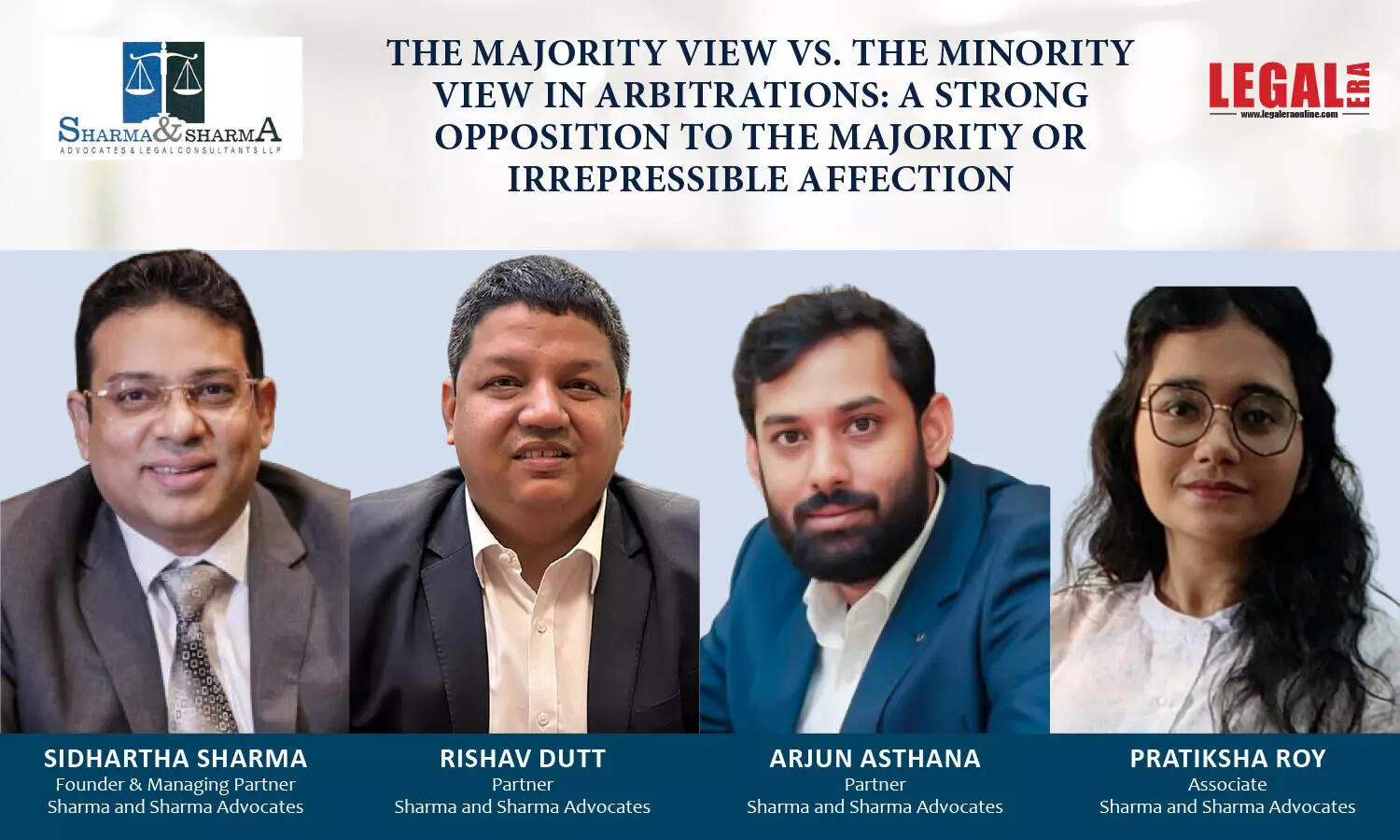- Home
- News
- Articles+
- Aerospace
- Artificial Intelligence
- Agriculture
- Alternate Dispute Resolution
- Arbitration & Mediation
- Banking and Finance
- Bankruptcy
- Book Review
- Bribery & Corruption
- Commercial Litigation
- Competition Law
- Conference Reports
- Consumer Products
- Contract
- Corporate Governance
- Corporate Law
- Covid-19
- Cryptocurrency
- Cybersecurity
- Data Protection
- Defence
- Digital Economy
- E-commerce
- Employment Law
- Energy and Natural Resources
- Entertainment and Sports Law
- Environmental Law
- Environmental, Social, and Governance
- Foreign Direct Investment
- Food and Beverage
- Gaming
- Health Care
- IBC Diaries
- In Focus
- Inclusion & Diversity
- Insurance Law
- Intellectual Property
- International Law
- IP & Tech Era
- Know the Law
- Labour Laws
- Law & Policy and Regulation
- Litigation
- Litigation Funding
- Manufacturing
- Mergers & Acquisitions
- NFTs
- Privacy
- Private Equity
- Project Finance
- Real Estate
- Risk and Compliance
- Student Corner
- Take On Board
- Tax
- Technology Media and Telecom
- Tributes
- Viewpoint
- Zoom In
- Law Firms
- In-House
- Rankings
- E-Magazine
- Legal Era TV
- Events
- Middle East
- Africa
- News
- Articles
- Aerospace
- Artificial Intelligence
- Agriculture
- Alternate Dispute Resolution
- Arbitration & Mediation
- Banking and Finance
- Bankruptcy
- Book Review
- Bribery & Corruption
- Commercial Litigation
- Competition Law
- Conference Reports
- Consumer Products
- Contract
- Corporate Governance
- Corporate Law
- Covid-19
- Cryptocurrency
- Cybersecurity
- Data Protection
- Defence
- Digital Economy
- E-commerce
- Employment Law
- Energy and Natural Resources
- Entertainment and Sports Law
- Environmental Law
- Environmental, Social, and Governance
- Foreign Direct Investment
- Food and Beverage
- Gaming
- Health Care
- IBC Diaries
- In Focus
- Inclusion & Diversity
- Insurance Law
- Intellectual Property
- International Law
- IP & Tech Era
- Know the Law
- Labour Laws
- Law & Policy and Regulation
- Litigation
- Litigation Funding
- Manufacturing
- Mergers & Acquisitions
- NFTs
- Privacy
- Private Equity
- Project Finance
- Real Estate
- Risk and Compliance
- Student Corner
- Take On Board
- Tax
- Technology Media and Telecom
- Tributes
- Viewpoint
- Zoom In
- Law Firms
- In-House
- Rankings
- E-Magazine
- Legal Era TV
- Events
- Middle East
- Africa

The Majority View vs. The Minority View In Arbitrations: A strong Opposition To The Majority Or Irrepressible Affection
The Majority View vs. The Minority View In Arbitrations: A strong Opposition To The Majority Or Irrepressible Affection

The Majority View vs. The Minority View In Arbitrations: A strong Opposition To The Majority Or Irrepressible Affection1 It is the need of the hour now that domestic jurisdictions such as India as well as Institutional Arbitration categorically deals with dissenting opinions and awards due recognition to them. We come across minority awards once in a while. In common parlance, dissenting...
To Read the Full Story, Subscribe to Legal Era News
Access Exclusive Legal Era Stories, Editorial Insights, and Expert Opinion.
Already a subscriber? Sign in Now
The Majority View vs. The Minority View In Arbitrations: A strong Opposition To The Majority Or Irrepressible Affection1
It is the need of the hour now that domestic jurisdictions such as India as well as Institutional Arbitration categorically deals with dissenting opinions and awards due recognition to them.
We come across minority awards once in a while. In common parlance, dissenting Award is an opinion issued by an Arbitrator who disagrees with the result and the reasoning of the majority Award.2 Expressing one’s individual opinion in the form of a minority award, can spiral into endangering the foundation of the majority award or it simply puts a different perspective to the same set of facts and law. However, the rectitude of dissenting judgements is called into question primarily during Section 34 proceedings for setting aside of an award under the Arbitration and Conciliation Act 1996 (“1996 Act in short”). The authors through this article attempt to examine the desirability of dissenting opinions in the Indian context in terms of their utility and effectiveness.
Existing Legal Regimes Governing dissenting opinions
Historically, the practice of dissenting opinion can be traced back to the practice of House of Lords where each Lord was required to declare his opinion separately. Presently, the practice is allowed in many domestic systems such as US, Canada, India and Australia.3 The legality of dissenting opinions in arbitration can be assessed from the fact that such opinions do not usually, unless provided otherwise in the governing Rules, form part of the award.4 Upon comparing the laws of the various jurisdictions, it is now a widely accepted fact that most domestic arbitration laws as well as majority institutional rules do not directly address the issue of dissenting opinions.
Legal spectrum under Arbitration and Conciliation Act, 1996
From the perspective of the Indian jurisdiction, arbitration proceeds on the basis of an agreed common procedure to be followed by the parties arising out of a Contract. It is always open for an Arbitrator to express his or her views.

The term “minority award” does not find a place in the Arbitration and Conciliation Act 1996 (“1996 Act). However, the term “majority” finds a place in the 1996 Act in a few sections, which naturally implies Section 29 (1) of the 1996 Act states that, unless otherwise agreed, any decision of the arbitral tribunal with more than one member, shall be made by a majority of all its members. Further, Section 31(2) of the Arbitration and Conciliation Act provides that the signatures of the majority of the members shall be sufficient “so long as the reason for any omitted signature is stated.”
A perusal of the 1996 Act discloses those awards which have majority support will be construed to be awards and a decision by a minority arbitrator does not meet the requirements of Section 31 of the 1996 and hence, cannot be called an “arbitral award” in the true sense.
The minority opinion has magnitude only to some extent but is very crucial while considering a petition for setting aside of an arbitral award.
Implication on Section 34 proceedings
A minority award often gives a psychological edge to any party suffering an award to challenge the majority award for setting aside. In Ssangyong Engg. & Construction Co. Ltd. v. National Highways Authority of India5, the minority award was upheld by the Hon’ble Supreme Court and the majority award was set aside. In Modi Entertainment (P) Ltd. v. Prasar Bharati6, the Hon’ble Delhi High Court upheld the “minority award” and set aside the majority award on the grounds that it is opposed to the fundamental policy of India. In ONGC vs Interocean Shipping (India) (P) Ltd.7 the Hon’ble
Bombay High Court, upheld the “minority award” and the impugned award rendered by the majority arbitrators was set aside on the ground of perversity. The Judgment of Dakshin Haryana Bijli Vitaran Nigam Ltd. vs. M/s. Navigant Technologies Pvt. Ltd8 while dealing with the relevance of a dissenting opinion discusses that:
(a) The dissenting opinion of a minority arbitrator can be relied upon by the party seeking to set aside the award to buttress its submissions in the proceedings under S.34.
(b) At the stage of judicial scrutiny by the Court under S.34, the Court is not precluded from considering the findings and conclusions of the dissenting opinion of the minority member of the tribunal.
(c) The arbitrator should consider carefully whether there is good reason for expressing his dissent, because a dissenting opinion may encourage a challenge to the award. This is for the parties’ information only and does not form part of the award, but it may be admissible as evidence in relation to the procedural matters in the event of a challenge or may add weight to the arguments of a party wishing to appeal against the award.
It can, thus, be inferred that neither can a minority decision of an arbitral tribunal be enforced9 nor does it have any binding affect upon the parties. The minority opinion has magnitude only to some extent but is very crucial while considering a petition for setting aside of an arbitral award Another view point that can also be put forth against the prevalence of such opinions is that dissenting opinions are often regarded as expressions of “irrepressible affection” between the arbitrators and the party that nominated him.10 In the Indian arbitration context, it cannot, however, be denied that dissenting opinions have undeniably become well accepted as part of arbitration practice.
Conclusion:
Curtailing dissenting-opinions directly interferes with the arbitrator’s right of expression. It is the need of the hour now that domestic jurisdictions such as India as well as Institutional Arbitration categorically deals with them and awards due recognition to them. At the same time, it cannot be ignored that the single biggest argument against dissenting opinions is the aesthetic effect that it embodies within itself.
In such circumstances, there is a pressing need to ensure that
the discretion to dissent should come with a logical caveat that the same should be exercised in exceptional circumstances by the Arbitrators.
Disclaimer – This is the personal views of the authors.
2. Nigel Blackaby Constantine Partasides, Alan Redfern. Martin Hunter, Redfern And Hunter on International Arbitration (6th Ed. Oxford University Press 2015);
3. Susan Frank, Empirically Claims about Investments Treaty Arbitration, 80 N.C.L Rev (2007);
4. Nigel Blackby, Constantine Partasides, Alan Redfern. Martin Hunter, Red Fern and Hunter on International Arbitration (6th ed. Oxford University Press, 2015);
5. 2016 SCC OnLine Del 4536.
6. 2017 SCC OnLine Del 7509: (2017) 163 DRJ 291.
7. (2017) 5 Arb LR 402.
8. AIR 2021 (SC) 2493.
9. 2007 SCC OnLine Del 226 :(2007) 95 DRJ 466.
10. Barton J. Bernstein, Plessy v. Ferguson: Conservative Sociological jurisprudence; 48 The Journal of Negro History|| Dissenting Opinions in International Commercial by Gautam Mohanty|| LLM Short Thesis in International Business Law|| Central European University|| April 6, 2017.


